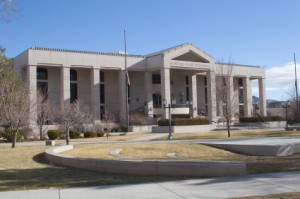The purchase of a house is the largest purchase most people will ever make. When hard times hit and a homeowner loses their house, the debt the homeowner still owes to the bank is the largest debt a person will ever have. After suffering a pay cut or the loss of a job and with few job prospects in Nevada, a homeowner might feel that they will never be able to pay off a defaulted loan on their house. If there are two loans, the situation is even worse. Many homeowners are nervous about what a bank can do to them and scared of the bank bringing a lawsuit against them. Nevada Assembly Bill 273 makes major improvements to the law to protect homeowners by limiting the amount of money a bank can collect after a homeowner loses their home. The law also reduces the time a bank has to file a lawsuit against some homeowners. These protections will greatly improve a homeowner’s opportunity to start over after a foreclosure or short sale, without the threat of a huge debt or a lawsuit by a lender.
Some definitions will make it easier to understand the new laws. Many of AB 273’s new laws apply to “second lienholders” who have been mostly unregulated under Nevada law. A “second lienholder” or “junior lienholder” is a bank, trust, investor or other entity that currently owns the second mortgage and has the right to collect a deficiency on a second mortgage. A “deficiency” is the amount of money a homeowner owes a lender on a mortgage loan after the house is sold at a foreclosure sale, trustee sale, short sale or a deed in lieu of foreclosure. The term “lender” in this article includes banks, mortgage companies, loan companies, investment trusts and any other entity that “holds” or owns the mortgage note or loan papers. In Nevada, under the old laws, a person’s individual assets and income could be taken by a judge if a lawsuit found the person owed a deficiency to a mortgage lender.
Under a recently amended Nevada law, a lender may not collect a deficiency in court on first mortgages taken out after October 1, 2009. Section 3 of AB 273 extends those protections to second mortgages taken out after June 10, 2011. This law will apply if the lender is a financial institution, the real property is a single-family house and the homeowner owned the property, used the loan to purchase the property, lived in the property and did not refinance the loan. Section 3 also expands the protection afforded to homeowners by prohibiting collection of deficiencies on an eligible second mortgage not only after a foreclosure sale or trustee sale, but also after a short sale and a deed in lieu of foreclosure. For the first time, homeowners who cooperate with the lenders and try a short sale or a deed in lieu of foreclosure will be protected from lenders that will not release the deficiency, at least with regards to junior lienholders.
The State Legislature also took steps to protect homeowners with older second mortgage loans. Section 3.3 states that a junior lienholder must file a lawsuit to recover a deficiency within six months after a foreclosure sale, trustee sale, short sale or a deed in lieu of foreclosure that occurs on or after July 1, 2011. A six month statute of limitation applies to first lienholders after a foreclosure sale or trustee sale. Beginning on July 1, 2011, a homeowner will only have to wait six months to find out if a lender will file a lawsuit. That should provide some relief to nervous homeowners. Remember that (1) for sales occurring before July 1, 2011, the six-year statute of limitations will still apply to lawsuits for collections on second mortgages and (2) the six-year statute of limitations will apply to lawsuits for collections on first mortgages for deficiencies after short sales and deeds in lieu of foreclosure.
Dozens of homeowners have questioned why they have to pay the full amount after a foreclosure when the lender has collected insurance payments on that loan. The Legislature also acted to fix this unfair situation. The new law states that the lender will not be allowed to collect from both the insurance company and the homeowner. Section 2 of AB 273 directs judges to subtract the amount of proceeds received by, or payable to, the holder of a second mortgage from an insurance policy from the amount owed by the homeowner. The laws in Section 2 will only apply to second mortgages taken out after June 10, 2011.
Many homeowners are finding that their mortgages are being sold to debt collection agencies or secondary buyers that seem to just want a big, quick pay-off. Unlike the big banks, these secondary buyers are not interested in short sales, deeds in lieu of foreclosure or promissory note contributions and their demands for big cash settlements can be extremely stressful for a borrower. Homeowners are savvy enough to know that these buyers paid much less than full price for these second mortgages, yet these companies want to collect on the entire balance of the mortgage, plus fees, penalties, costs and interest. Nevada law allows a lender to recover in court an amount of deficiency that remains from the full loan balance after subtracting the fair market value or actual sale price of the home (with interest). Section 5 of AB 273 limits that recovery if the creditor acquired the right to obtain a money judgment (meaning the creditor bought the loan or the debt from a previous holder of the note). If so, the recovery is limited to the amount the creditor paid for the loan minus the fair market value or actual sale price of the house, plus interest. Section 5 becomes effective June 10, 2011. Creditors that purchase second mortgages and sue to collect are governed by Section 2 of AB 273. This law applies to any person or business that acquires the right to enforce a junior mortgage from a previous holder of the second mortgage, and limits the amount that can be won in court to the amount of money the new holder paid for that second mortgage, plus interest and costs. Sections 2 and 5 of the new law will stop businesses from paying pennies on the dollar for mortgages and then trying to collect in full.
These new Nevada laws go a long way toward protecting homeowners from unfair costs and lawsuits after the loss of their home.
Carlos L. McDade, Esq.
 Click here to listen to the Legal Hour on KDWN AM720 from November 16th, 2011 in which Managing Partner, Tisha Black Chernine, Esq., discusses her contribution to Channel 8′s Desert Underwater series and talks with Chief Investigative Reporter, George Knapp, about the effects of the Real Estate crisis on the Las Vegas valley. Assemblyman Marcus L. Conklin also makes a guest appearance to talk about the government’s role in Real Estate and the new legislation that seeks to restore the foreclosure process such as AB 284 and AB 273. (22:15)
Click here to listen to the Legal Hour on KDWN AM720 from November 16th, 2011 in which Managing Partner, Tisha Black Chernine, Esq., discusses her contribution to Channel 8′s Desert Underwater series and talks with Chief Investigative Reporter, George Knapp, about the effects of the Real Estate crisis on the Las Vegas valley. Assemblyman Marcus L. Conklin also makes a guest appearance to talk about the government’s role in Real Estate and the new legislation that seeks to restore the foreclosure process such as AB 284 and AB 273. (22:15) Black & LoBello has received numerous inquiries regarding the new real estate laws discussed in our
Black & LoBello has received numerous inquiries regarding the new real estate laws discussed in our  Nevada Assembly Bill 273
Nevada Assembly Bill 273



